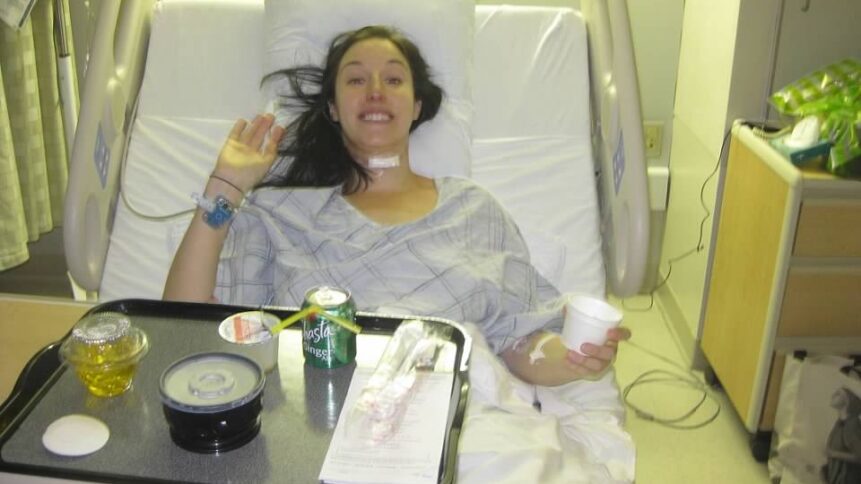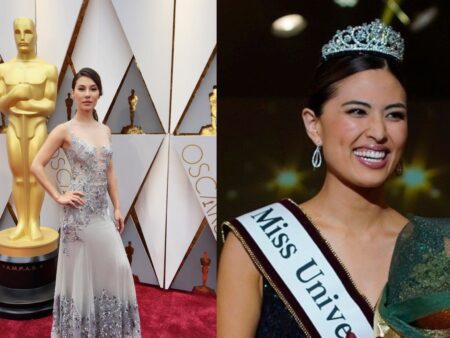
When my husband and I were initially diagnosed with a fertility problem, it seemed simple. Our diagnosis was male-factor infertility. His swimmers were a little slow. We underwent IVF. We made embryos. We genetically tested those embryos. We were told this would be a slam-dunk.
Two years later, after countless failures and miscarriages, it was clear to me that my husband’s sort-of-slow swimmers were not our problem. If they had been, we’d have already had a baby by then. Maybe two.
The doctors didn’t seem to care about the back story or the emotional context. But for me, a teacher, a writer, a believer in meaning and narrative, the back story of my body and my marriage was the only way I could make sense of the whole mess.
Our “mess” began forty-three days after our wedding when I, still sun-kissed from my honeymoon, was rear-ended by a drunk driver while visiting my brother on Cape Cod. The damage—to the car, to my body, to my brand-new marriage—was catastrophic.
The next two years were filled with hundreds of doctor appointments, dozens of medical procedures, and two major spine surgeries: I became a bionic woman, with artificial spinal discs in two levels of my spine.
Until that moment when a Honda Accord with green Vermont license plates rear-ended my vehicle, my greatest tragedy had been the loss of my grandparents.
I had always been aware of my blessings, of my good fortune. We didn’t have a white picket fence around my childhood home, but my entire life was, in many ways, sheltered.
After my accident, I recognized how blessed, how lucky I was to walk out on my own two feet, that it could have been so much worse—but the moment of impact of the accident was the worst moment I’d experienced in my almost twenty-nine years.
After the crash, while I sat on the curb in a daze waiting for the ambulance to arrive, looking at where the airbag singed the skin on my biceps, tasting blood every time I swallowed, listening for the sirens to come save us, I began to wonder: what if, what if, what if?
What if Mike and I had taken our honeymoon later in July, so I was in Greece or in Italy, not Cape Cod, on this particular day? What if we hadn’t gotten lost on our way to the laundromat?
I spent the next few years in and out of doctor’s offices, crying on street corners, in crippling, all-encompassing, existential pain: What if I’d rented a sturdier car? What if it had been worse, if I’d been paralyzed, if I’d died? What if, what if, what if?
I was deeply depressed. I was in constant, intense pain. I was changed, profoundly, in ways the people closest to me couldn’t seem to understand. I hated them for not understanding me. I was overwhelmed by my anger.
It was a hard time.
Three years after that July day, when my body felt reasonably recovered from the surgeries, and when both my marriage and my soul felt reasonably recovered from everything that had happened, my husband and I finally began trying for a child. It would take three more years, countless doctors, procedures, medications, fights, tears, and eleven embryo transfers before we welcomed our first child.
As we were going through our infertility process, I couldn’t find any sense. Hadn’t I already had my medical odyssey? Hadn’t our marriage already been tested? It was three years of trying and failing, poking and prodding, bleeding and miscarrying and crying.
In the thick of this, my husband lost both of his parents. Our marriage was crushed by the existential weight of the doctors, the pain, the disappointment.
As we were going through our infertility process, I couldn’t find any sense. Hadn’t I already had my medical odyssey? Hadn’t our marriage already been tested? It was three years of trying and failing, poking and prodding, bleeding and miscarrying and crying.
In the thick of this, my husband lost both of his parents. Our marriage was crushed by the existential weight of the doctors, the pain, the disappointment.
What if, what if, what if. What if my spine just couldn’t handle a pregnancy, and that’s why IVF continued to fail? What if we weren’t stressed by Mike’s mother’s illness? What if I’d married someone else?
We recently celebrated our eleventh wedding anniversary. We have two children now, both the products of arduous IVF efforts, and not a day has passed since they were born that I haven’t cried. I’m not angry anymore. They were so, so worth it.
I’ve made peace with the things I can’t control. The life I’ve built in the wake of what happened is a beautiful one.
I’ve learned a lot. I’ve learned how to advocate for myself, how to navigate medical jargon, how to fight fairly with my husband. I’ve learned how to find the joy and beauty through the darkness. I’ve learned that my husband is stronger than I ever gave him credit for, and that without him as a partner, I would have given up on myself and on IVF much sooner. I’ve learned how to recover, and to persevere. I’ve learned how to temper expectations. I wonder what sort of person I would be, what sort of parent I would be, if I didn’t have these experiences to learn from.
My anger has slowly evolved past acceptance and into gratitude. And sometimes I wonder, when I watch my husband with our children, what it would have been like if we’d gotten pregnant around our first anniversary, as we’d initially planned.
Sometimes I wonder, when I watch my husband with our children, what it would have been like if we’d gotten pregnant around our first anniversary, as we’d initially planned.
The early years after the crash were so hard on our marriage, but we got through them. If we’d had children first, and things had been hard in the ways that life and marriage can be hard with children? What would our marriage look like now? Would Mike have made the professional choices he’s made to be present in our family if we hadn’t struggled so hard for these children?
Maybe these are the lies we tell ourselves for our own sanity, but when I think about it now, it is clear that these struggles were necessary. They strengthened and shaped us as individuals, as partners, and as parents.
It seems to be human nature, or at least my nature, to keep wondering about the past and present what if: What if none of our struggles had happened?
While, of course, I wish that none of the pain and suffering had happened—I wouldn’t wish it on anyone—I also know that these two specific children that we have feel inevitable. If none of it had happened, would they exist?
In my heart, it is clear: It always had to be this way. It always had to be them.
Contributor
Holly Schechter
Holly Schechter is an English teacher at Stuyvesant High School in New York City. She also serves on the editorial staff of Intima: Journal of Narrative Medicine.

Listen to stories, share your own, and get feedback from the community.


















